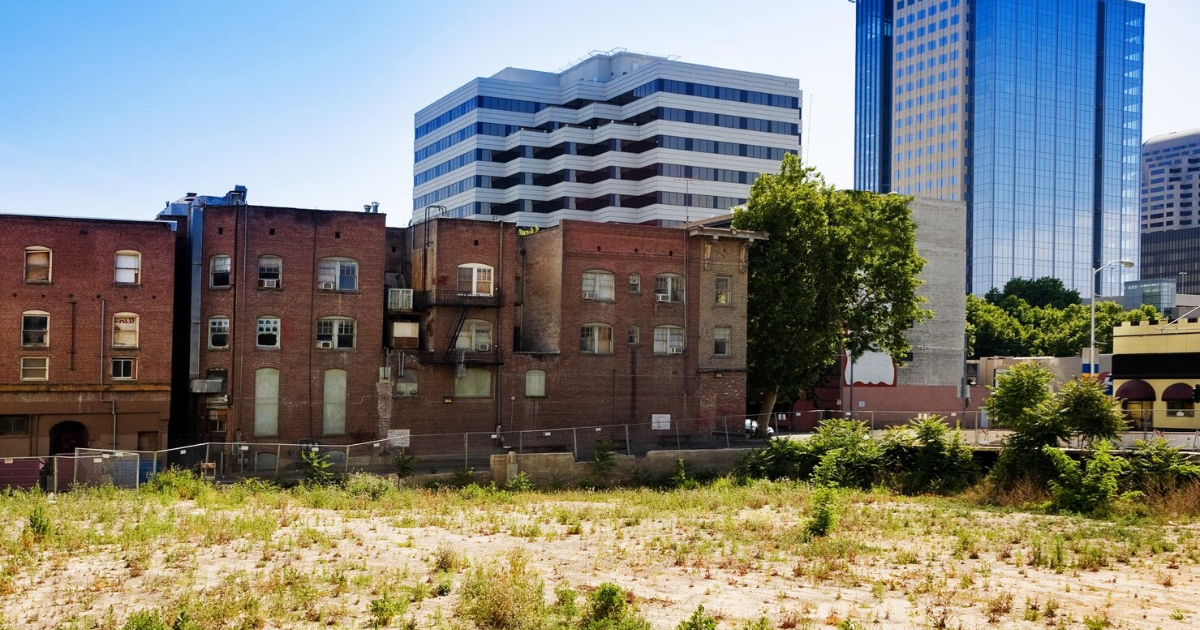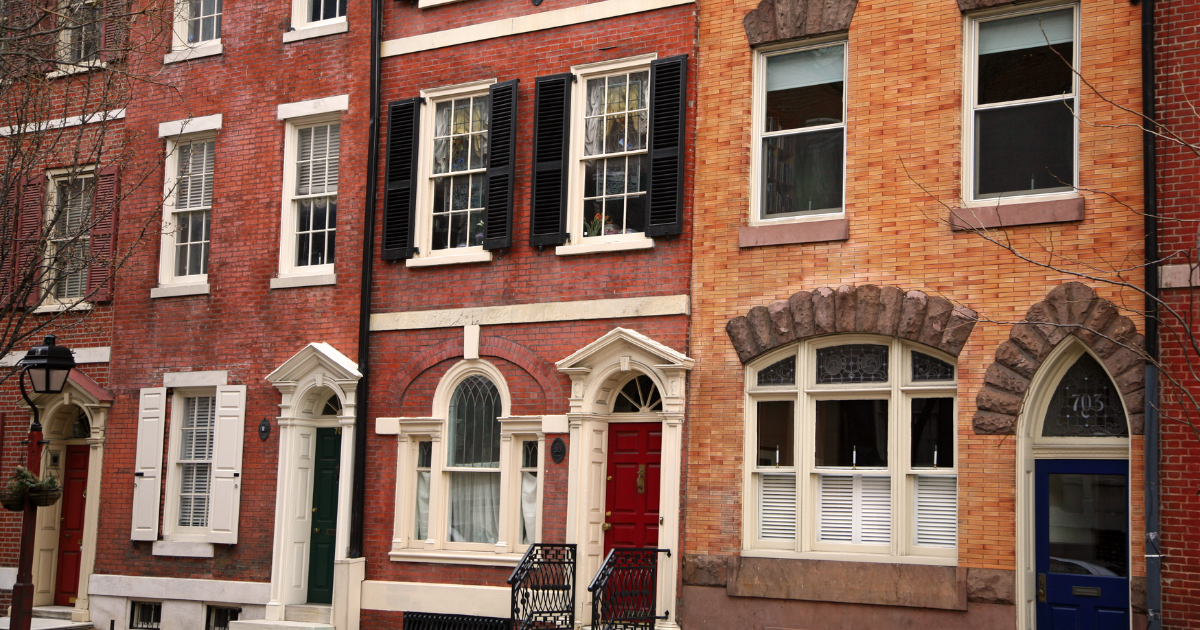Consentable Lines Doctrine Clarified in PA Property Case
Developing properties in Philadelphia has many challenges since this is a “row-home” city, which means the building structures are connected to one...
6 min read
Alan Nochumson and Alex Goldberg : Jun 10, 2022 9:00:00 AM

For the first time in several years, the city government in Philadelphia has begun to issue property reassessments by way of its tax assessment department, the Office of Property Assessment.
According to the Office of Property Assessment, a strong real estate market has caused the aggregate value of all properties in Philadelphia to rise approximately 21% since the last property reassessment.
In this article, we outline the various governmental programs that will reduce the impact of the increased proposed property assessments in order to ensure that real estate taxes remain affordable to the some of the most vulnerable property owners in Philadelphia.
The Homestead Exemption currently reduces the taxable portion of a primarily residential property by $45,000.
Currently, the Homestead Exemption of $45,000 equates a savings to of approximately $630 on a property owner’s real estate tax bill. However, Mayor James Kenney has stated his desire for Philadelphia City Council to introduce and enact legislation increasing the Homestead Exemption to $65,000, equating to additional real estate tax savings. If the proposed increase in the Homestead Extension passes, property owners need not reapply to the program—the change will be automatically applied.
In order to be eligible for the Homestead Exemption, the individual must typically own and reside at the property and the property must not be subject to a real estate tax abatement,
An individual who resides at a property may be eligible to receive a conditional Homestead Exemption even if that individual’s name is not on the deed to the property, if the individual inherited the property from a deceased relative, if a fraudulent deed was recorded against the property, or if the individual entered into a rent-to-own agreement and has paid all or some of the monetary consideration for the property. Under these circumstances, the Homestead Exemption would be granted three years from the date of application.
The deadline to apply for the Homestead Exemption is Dec. 1 of previous tax year. However, property owners should file the application by Sept. 13, 2022, to ensure that the Homestead Exemption is reflected on their real estate tax bill for the 2023 tax year.
An individual may apply for the Homestead Exemption at //rev.phila.gov/homestead/, by calling 215-686-9200, or by mailing the following application at city of Philadelphia, Department of Revenue, P.O. Box 52817, Philadelphia, Pennsylvania 19115: https://www.phila.gov/media/20220223090043/Homestead-Exemption-application-Philadelphia-2023-form.pdf
LOOP is a real estate tax relief program for eligible property owners whose property assessments have increased by 50% or more from the previous tax year.
This governmental program is advantageous for property owners in rapidly gentrifying neighborhoods, as it locks in a property reassessment at 150% of the previous tax year’s property assessment for as long as the property owner remains eligible under this governmental program.
In order to be eligible for this governmental program, the individual must: reside at the property for a minimum of the previous 10 years; be current with their real estate taxes for the property or be a participant in an owner-occupied payment agreement or installment plan; and have income that falls below this governmental program’s limits.
To apply for this governmental program, the individual must complete the following application and mail it to Philadelphia Department of Revenue, P.O. Box 53250, Philadelphia, Pennsylvania 19105: //www.phila.gov/media/20220513080323/Longtime-Owner-Occupants-Program-LOOP-application-2023.pdf
In the alternative, the application can be hand-delivered to the following locations:
Municipal Services Building
Department of Revenue
1401 John F. Kennedy Boulevard
Philadelphia, PA 19102
Northeast Municipal Services Center
7522 Castor Ave.
Philadelphia, PA 19152
Hope Plaza
North 22nd St. and West Somerset St.
Philadelphia, PA 19132
The city of Philadelphia’s Department of Revenue offers to prevent a real estate tax bill from increasing if the affected individual meets certain age and income requirements.
This real estate tax freeze applies even if the property assessment or tax rate changes. If the real estate tax liability decreases due to a lower property assessment or tax rate decrease, the amount of real estate taxes the affected individual owes in real estate taxes will also be lowered to a new amount.
Last, Councilmember Brian O’Neill introduced legislation that would extend the deadline to apply for the tax freeze.
An individual is eligible under this governmental program if the individual is aged 65 years or older; resides in the same household with a spouse who is aged 65 years or older, or is aged 50 years or older who is a widow of a spouse who reached the age of 65 before passing away.
An applicant under this governmental program must have a total income of $33,500 or less for a single individual or $41,500 or less for a married couple.
To apply for this governmental program, the individual must complete the following application and mail it to Philadelphia Department of Revenue, P.O. Box 53190, Philadelphia, Pennsylvania 19105.
In the alternative, the application can be hand-delivered to the same above locations.
Senior citizen and low-income individuals who own and reside in the property may be eligible to pay their property’s real estate tax obligations in monthly installments to the city government in Philadelphia.
If first-time participants in this governmental program make all required monthly payments, they will be automatically enrolled in the installment plan for the following tax year. However, if the individual fails to make the monthly payment due under this governmental program, that individual will be considered in default, removed from this governmental program, and all real estate taxes will be due at that time.
Individuals who are at least 65 years of age or have a spouse who resides in the same household who is at least 65 years old may be eligible.
In addition, low-income individuals may be eligible based on family size and monthly maximum household income.
To apply, an individual must complete the following application and mail it to Philadelphia Department of Revenue, P.O. Box 53250, Philadelphia, Pennsylvania 19105: https://www.phila.gov/documents/real-estate-tax-installment-plan-application/.
In the alternative, the application can be hand-delivered to the same above locations.
The application window for the 2022 tax year closed in March, so interested property owners will have to look ahead to apply for this governmental program for the 2023 tax year.
Under OOPA, property owners may make monthly payments on real estate taxes which are past due.
To be eligible under this governmental program, the individual must reside in the property that the individual owns or, if the name of that individual is not on the deed to the property, the individual must have a legal interest in the property.
In order to maintain eligibility under this governmental program, the individual must pay all new real estate taxes as they become due.
To determine the minimum monthly payment amounts, participants under OOPA are arranged into one of five tiers, with tiers based upon monthly household income and family size, as follows:
A property owner who finds that the monthly payment due under this governmental program is not affordable may request that the monthly payment is based upon their net monthly income after taking into account their monthly expenses.
To apply, an individual must complete the following application and mail it to Philadelphia Department of Revenue, P.O. Box 53250, Philadelphia, Pennsylvania 19105: https://www.phila.gov/documents/owner-occupied-real-estate-tax-payment-agreement-forms/.
In the alternative, the application can be hand-delivered to the same locations above.
The Active-Duty Tax Credit is designed for members of the United States Armed Forces Reserve or National Guard called into active duty.
This governmental program relieves such military service members from paying real estate taxes in Philadelphia while they are called to active duty outside of Pennsylvania.
To be eligible under this governmental program, the individual must own the property as their primary residence.
The real estate tax credit amount under this governmental program is calculated by taking the portion of real estate tax you which would otherwise be due for a full tax year and dividing that number by the number of days in a calendar year. This number is called the “daily property tax rate.” The daily property tax rate is then multiplied by the days the individual spends on active duty. The resulting number is the amount of real estate tax credit the applicant will be eligible to receive.
To apply for this governmental program, an individual must complete the following application and mail it to Philadelphia Department of Revenue, P.O. Box 53190, Philadelphia, Pennsylvania 19105: //www.phila.gov/media/20220228090124/Active-Duty-Real-Estate-Tax-Credit-application-2022.pdf
In the alternative, the application can be hand-delivered to the same locations above.
The city government in Philadelphia offers a deferral program for property owners who see their real estate taxes increase by more than 15% from the previous tax year.
Considering the dramatic rise in property assessments proposed for the 2023 tax year, the property owner should determine if they meet the eligibility criteria for this governmental program.
In order to be eligible, the individual must use the property as their primary residence and all real estate taxes on the property must be up-to-date or under a payment agreement or installment plan.
If eligible, the property can defer payment of the real estate taxes which otherwise would be due until the property is sold or transferred, but they must pay a minimum annual interest rate of at least 2% until that occurs.
Eligibility is determined by annual household income and size, as follows:
Applications under this governmental program for the 2022 tax year have yet to be released online, but, as a guide, the applications for the 2021 tax year may be reviewed online at https://www.phila.gov/documents/real-estate-tax-deferral-application.
Reprinted with permission from The Legal Intelligencer © 2022 ALM Media Properties, LLC. All rights reserved. Further duplication without permission is prohibited. For information, contact 877-257-3382, reprints@alm.com or visit www.almreprints.com.

Developing properties in Philadelphia has many challenges since this is a “row-home” city, which means the building structures are connected to one...

In Tri-Outdoor v. Keyser, 2022 Pa. Super. Unpub. LEXIS 891 (Apr. 18, 2022), the Pennsylvania Superior Court recently addressed whether a tenant could...

The recent ruling handed down by the Pennsylvania Superior Court in Lomuscio v. Cole, 2022 Pa. Super. Unpub. LEXIS 2867 (Dec. 6, 2022), examines...